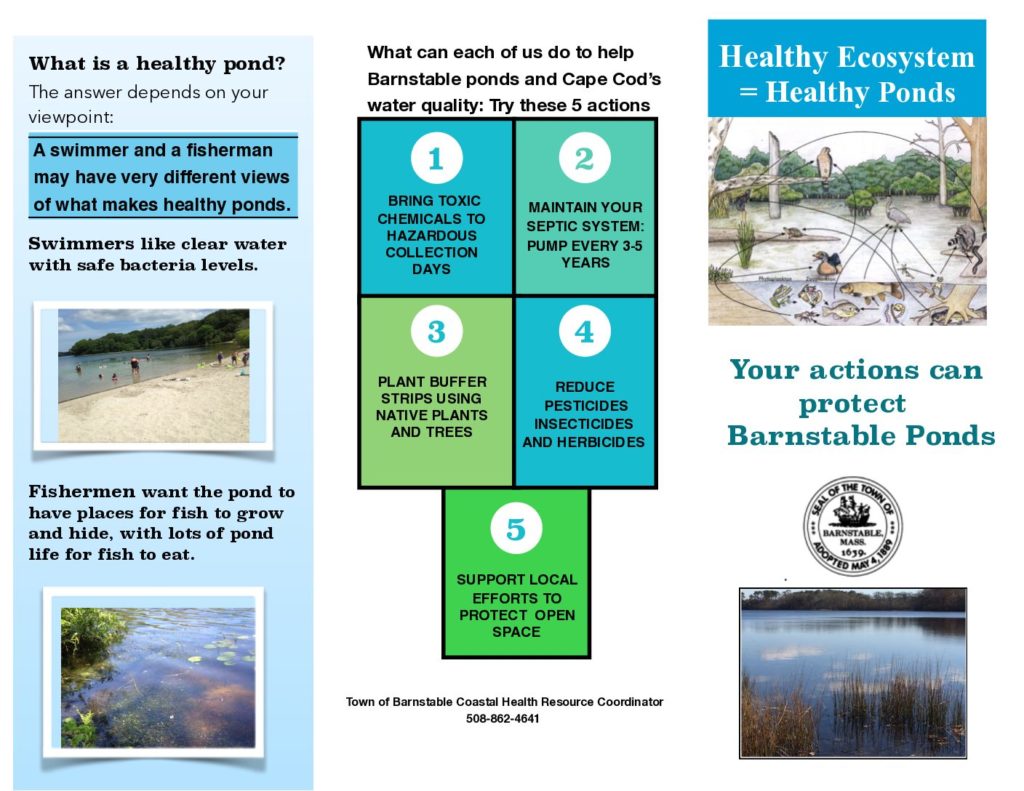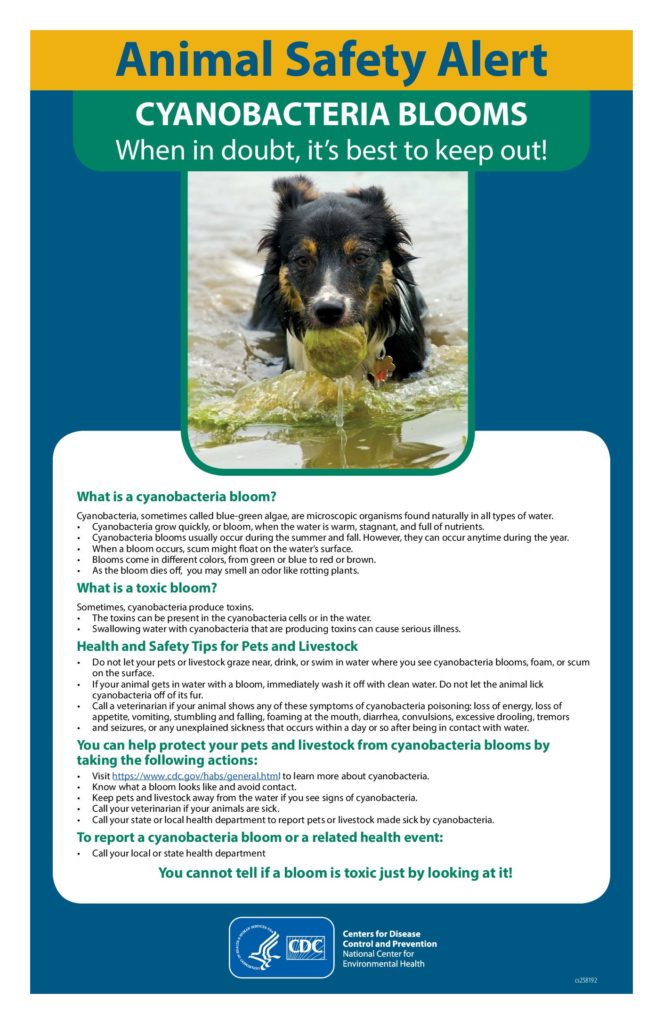
Harmful Algal Blooms or “HABs”: How they can affect you, your children and your pets
Is there a mysterious green scum at your local swimming spot? Does the water have a cloudy greenish hue? Are there signs posted warning against “toxic algae blooms”?
“When in doubt, it’s best to stay out”!
According to the Centers for Disease Control (CDC), harmful algal blooms or “HABs” result from the rapid growth, or bloom, of algae that can cause harm to animals, people, or the local environment. They can look like foam, scum, or mats on the surface of water and can be different colors. Harmful algal blooms can occur in warm fresh, marine, or brackish waters with abundant nutrients. There are many organisms that produce harmful algal blooms and harmful algal blooms may have many have different names.
In fresh water, such as lakes and rivers, harmful algal blooms are most commonly formed from cyanobacteria. Although they are called bacteria, they do not cause infections in people. Instead they can harm people and pets by creating toxic substances that might be inhaled or accidentally consumed.
The Barnstable County Department of Health and Environment receives regular calls regarding harmful algal blooms, especially due to recent cyanobacteria-related closures in the Town of Barnstable (see update below). While we don’t currently perform algal cell counts here at our laboratory, we remain abreast of each town’s surveillance efforts and do our best to answer questions to the best of our ability. It is important to note that our routine weekly recreational water quality testing pertains only to fecal bacteria as mandated by Massachusetts Bathing Beach Regulations 105 CMR 445.000. For more information about the specifics of our testing, please visit:
https://www.barnstablecountyhealth.org/programs-and-services/bathing-beach-water-quality
Please understand that while a sample of beach water may pass the state requirement for fecal bacteria, the algal counts could pose a health risk to pets or humans. Therefore, is important to heed any advisories you observe posted at the beaches, regardless of whether or not our fecal bacteria test has passed for the week.
***
Town of Barnstable Cyanobacteria update 9/23/19
Pet Advisories are lifted for Lovells and Long Pond Centerville this week – cyanobacteria cells have gone down to low levels.
This is the last week of pond monitoring; however the Town of Barnstable will continue to monitor Shubael and Hinckley ponds until 10/10/19.
Monitoring season begins again in May 2020.
Pet Advisory:
Shubael Pond
Warning:
Hinckley Pond
Closure:
None
Definitions
Pet Advisory:
Toxic cyanobacteria are present <20,000cells/ml. Cyanobacteria may have not collected into a film on the surface. Pond shows slight discoloration, but you can easily see through water. Low to minimal health risks to people, higher risks for pets.
Warning:
Toxic cyanobacteria may have started to collect and form a film on the surface >20,000 cell/ml. Pond shows slight to moderate discoloration. Can see through water, but water is cloudy. Low to moderate health risks for people. Higher risk for babies and small children. Higher risks for pets.
Closure:
Toxic cyanobacteria have collected and formed a scum on shore or thick film on the surface (looks like soup or paint)>70,000cells/m and Microcystin (toxin) >10 ppb. Pond shows moderate to extreme discoloration. Moderate health risks for adults. Higher risk for babies and small children. Highest risks for pets
***
For more information about harmful algal blooms, please explore the links below:
Association to Preserve Cape Cod (APCC) – Cyanobacteria Monitoring Efforts Cape-wide:
https://www.apcc.org/cyano/
General information regarding HABs from the Centers for Disease Control:
https://www.cdc.gov/habs/general.html
Cyanobacteria Blooms FAQ:
https://www.cdc.gov/habs/pdf/cyanobacteria_faq.pdf




